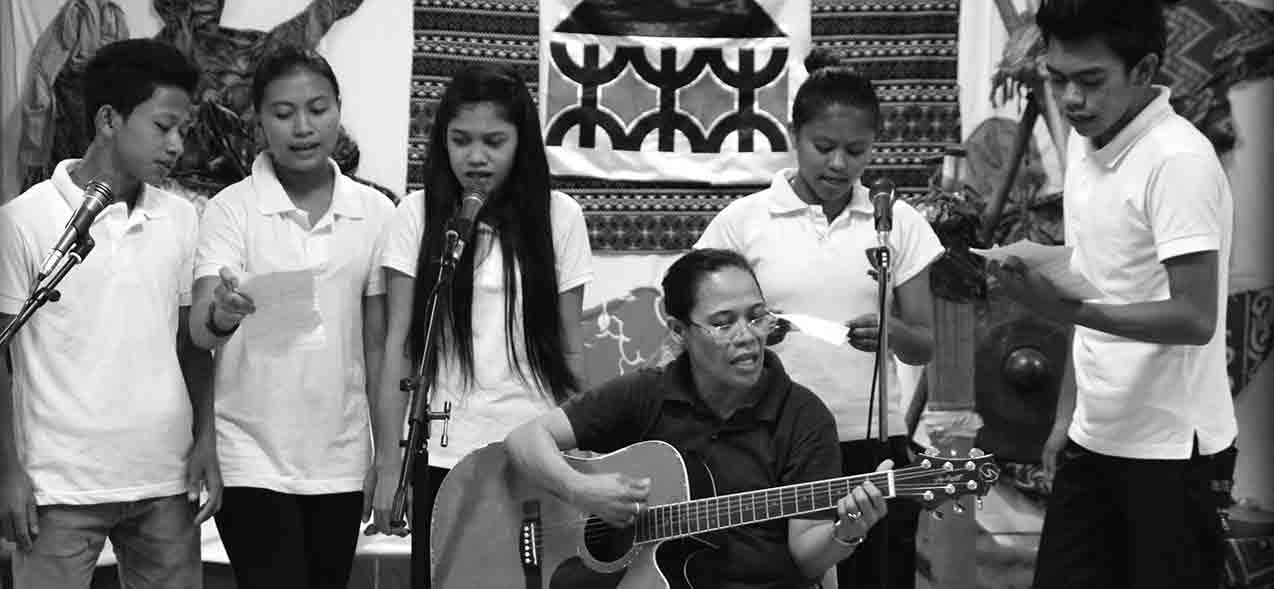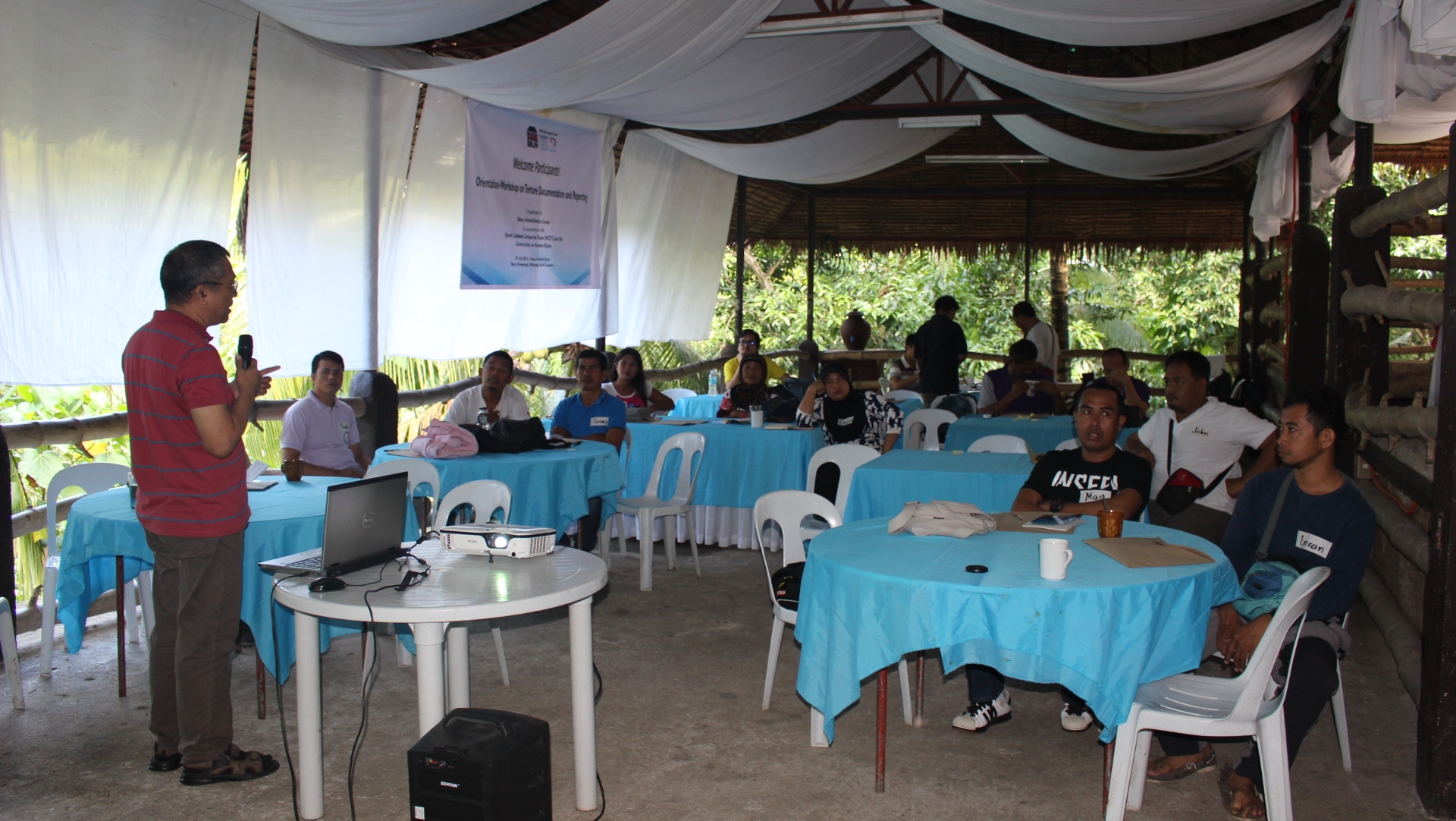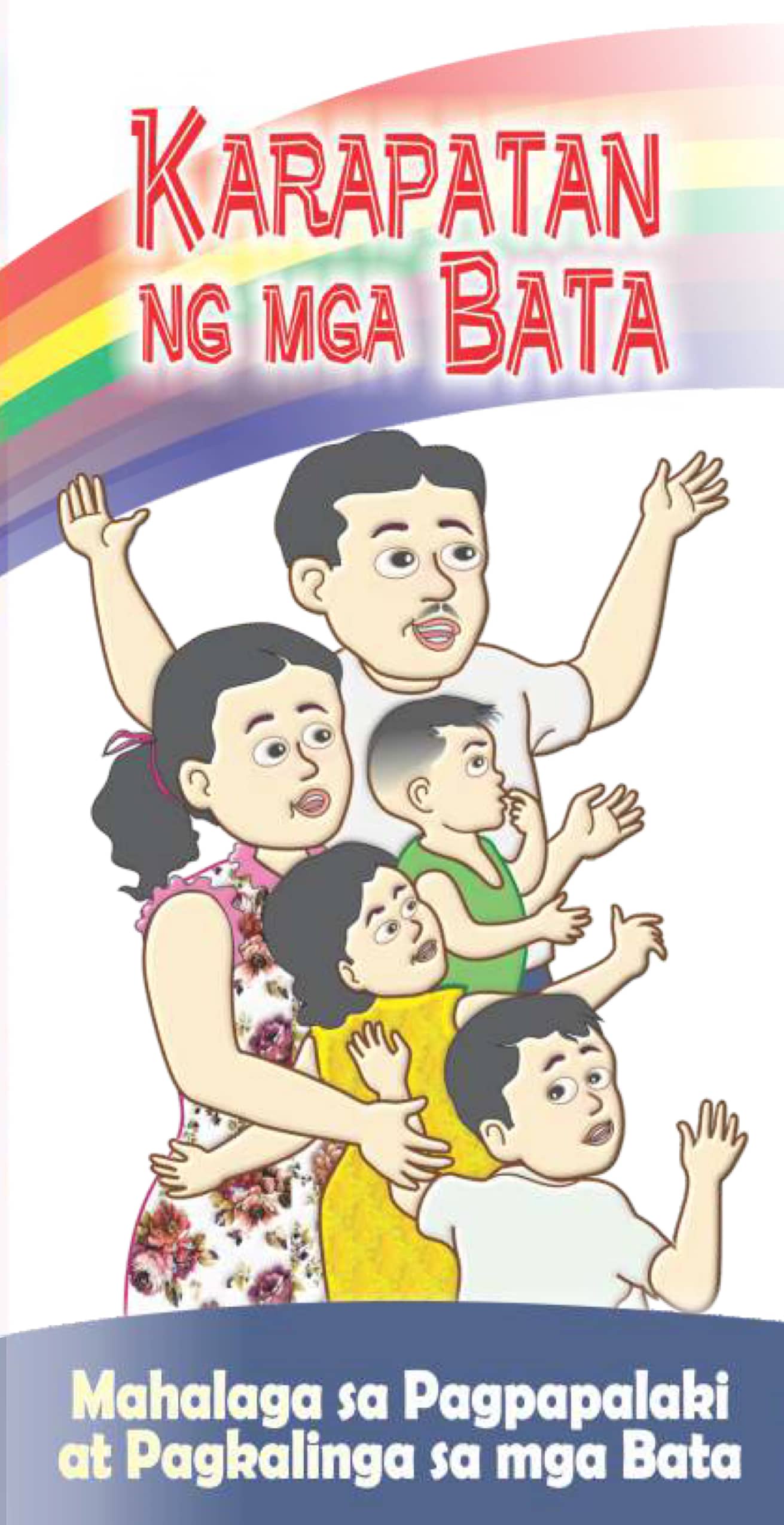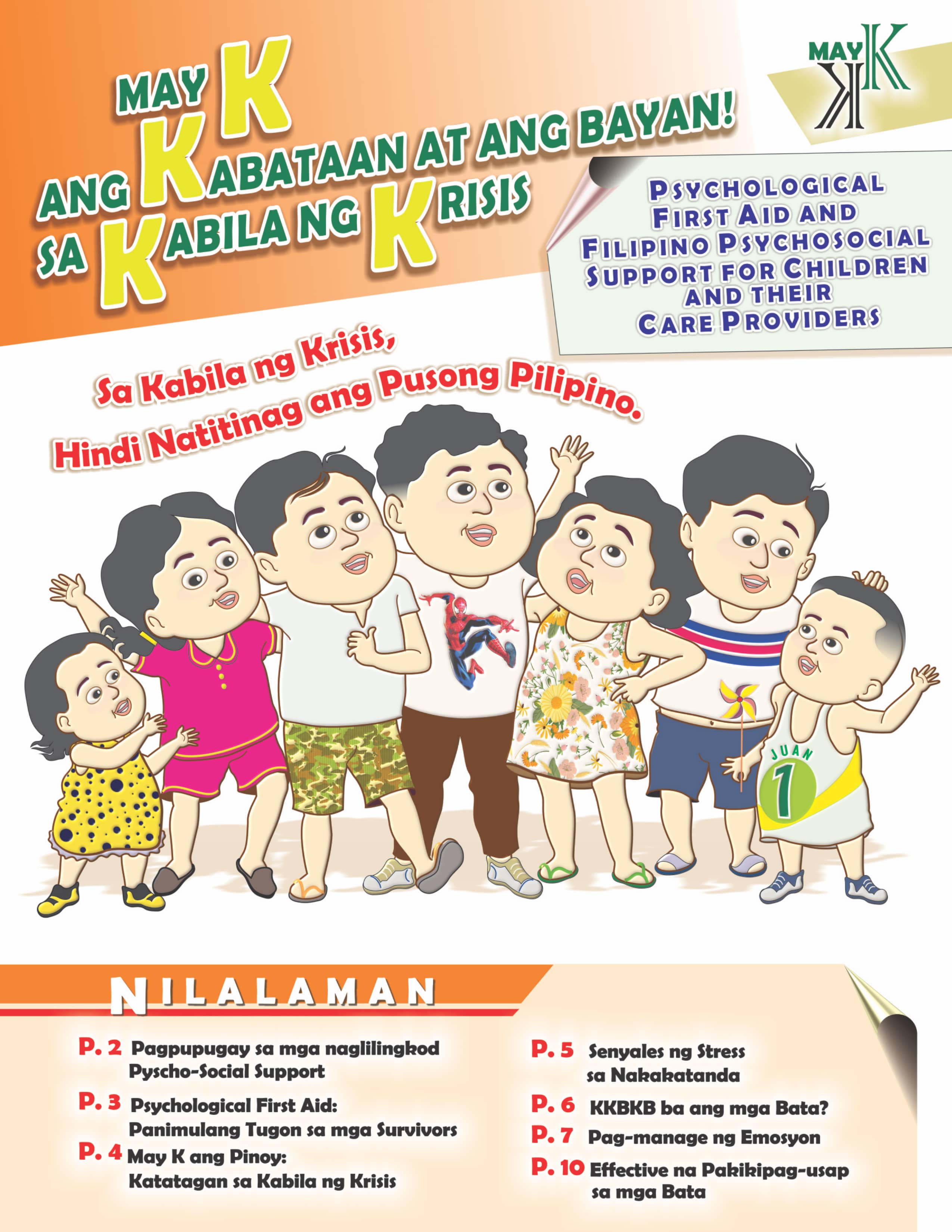Members of civil society organizations in conflict-affected areas in North Cotabato in Mindanao participated in a study session on torture documentation and reporting organized by the Balay Rehabilitation Center on July 27, 2016.
Twenty-five people who belong to a network of faith-based groups, community associations, and humanitarian organizations engaged in civilian protection in eight security-challenged municipalities attended the activity.
The leaning event was held in the town of Midsayap with the support of the North Cotabato Composite Team (NCCT), a network formed by Balay and its partners to assist in the monitoring and provision of humanitarian support to civilians displaced by or at-risk of being harmed by armed violence and natural hazards.
Balay was prompted to organize the learning session following a case of torture in Midsayap that was documented by its field workers and community-based volunteers in June 2016. The first-contact documenters interviewed the victims, took pictures and obtained a copy of the medical report that supported the narrative of the victims.
Acting on the report of the field documenters, the Commission on Human Rights (CHR) sent its special investigator to gather more information to build up the cases against the alleged perpetrators.
The CHR supported the learning session through its Regional Director, Atty. Erlan Deluvio, who provided inputs on the Anti-Torture Law and introduced the programs and services of the commission. He assured the participants that once reports reached the CHR, they would send investigators to gather facts and other pieces of evidence that could be used to seek justice or rehabilitation assistance for the victims.
The head of the Legal and Investigation Office of the Regional Human Rights Commission of the Autonomous Region in Muslim Mindanao. Mr. Abdillah Alik, also attended the activity. He encouraged the participants to refer torture cases and other incident of human rights violations to his office so that they could attend to them as well.
Balay program coordinator, Kaloy Anasarias, said that it is quite important to widen the network of first-contact documenters in order to monitor and promptly respond to reports of torture and other human rights violations in places where professional investigators are not readily available. He added that many incidents of torture are hardly verified because agencies mandated to properly inquire on those cases are unaware that torture has been taking place in communities vulnerable to social violence, anti-terrorist operations, and other hard to reach places.
The participants discussed basic concepts and some essential elements in producing a good documentation report regarding torture cases. The resource persons presented the common physical and psychological effects of torture and introduced a practical documentation tool that the participants may use in noting down relevant information during their inquiries. Tips on interviewing torture victims and in reducing the risk of harassments to field workers were covered in the study session as well.
























